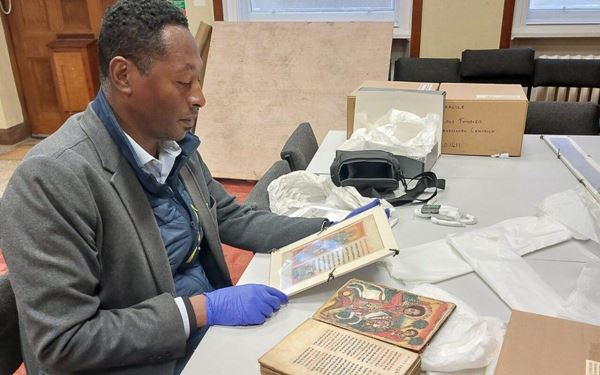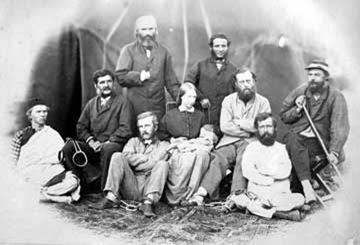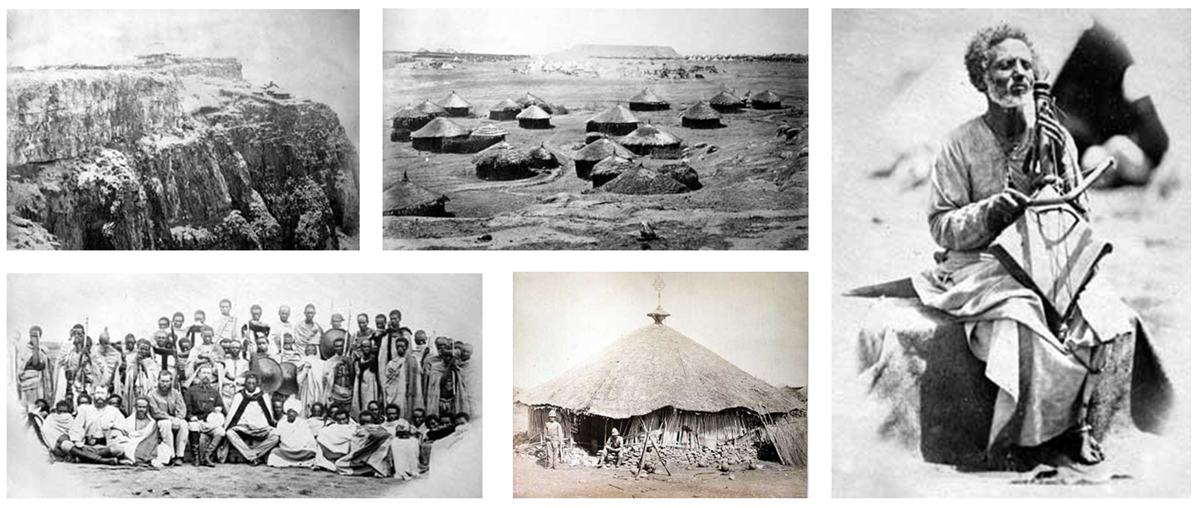Abyssinia Project
Addressing the colonial era legacy of the King's Own Royal Regiment and researching cultural objects related to the 1868 Abyssinian campaign.

In 2022 the Museums were instrumental in securing £53,000 (see Project Funding below) for the King’s Own Royal Regiment Museum Trustees to undertake the Abyssinia Project exploring the colonial era legacy of the 1868 campaign and the objects in their collection. Eyob Derillo, an Ethiopian expert from the British Library, has been appointed as the Project Officer, and the project has attracted significant international interest.
The King’s Own collection includes objects taken during the 19th-century campaign in Abyssinia, now Ethiopia. Many of these objects may have a deep cultural significance for the modern nation and Eyob Derillo, an Abyssinian specialist and author of histories of magic, has been engaged to research the objects in the collection relating to the Campaign, both from the Abyssinian (Ethiopian) and British sides.
The project also aims to work with source communities such as the Ethiopian community within Britain, the National Museum of Ethiopia and also the Regimental family as well as local students and volunteers.
The work is particularly relevant as there have been calls from Ethiopia to return looted objects that are considered sacred by those involved in the Ethiopian Orthodox Church.

The King’s Own Museum wants to tell the stories not only of the regiment’s soldiers but also their “adversaries”, who they met on the battlefield. Our ambition is to now work in partnership with stakeholders from Ethiopia in bringing a fully rounded perspective and involvement in what was a truly extraordinary event, the 1868 invasion of Abyssinia by British forces, including the King’s Own Royal Regiment, to secure hostages.
The British government often employed its military strength to settle its disputes with foreign powers. In this case, the army was called upon to free several Europeans who were being held captive in Abyssinia. The King’s Own was one of three regiments to serve in this campaign. On arrival from India, the King’s Own marched many hundreds of miles inland to the fortress of Magdala. During the Battle of Arogie, the Abyssinians were defeated and the fortress was stormed days later. The conflict resulted in the sacking of the fortress of Magdala, the death of Emperor Tewodros II, and the subsequent auction of items from the fortress/palace.

Photos from the collection, clockwise from top left:
- Exterior and interior of Magdala fortress.
- Abyssinian Fiddler.
- The Church of Madhane Alam, dedicated to the Saviour of the World.
- Kassa's Prime Minister and followers.

The King's Own collection also includes a number of beautifully illuminated scrolls and texts such as this one, alongside other artefacts from both sides.
The links below will take you to the websites of some other museums and libraries in the UK which house items from Ethiopia, including those relating to the Abyssinia campaign of 1868. Ongoing research and cataloguing efforts continue to uncover more of these objects and their stories. Find out more in this article from The Standard: Cultural Treasures from Ethiopia found in London.
Museums
British Museum (London): Maqdala Collection - The British Museum has a significant collection of Ethiopian artifacts, including items from the Maqdala collection. This collection includes ceremonial crosses, chalices, processional umbrella tops, weapons, textiles, jewelry, and sacred altar tablets known as tabots.
Victoria and Albert Museum (London) - The V&A Museum holds various Ethiopian artifacts, including a crown and royal wedding dress.
The National Army Museum (London) - This collection includes many items from Ethiopia, and the museum's website explores the history of the 1868 campaign as well as recent stories of repatriation:
Wellcome Collection (London) - This collection includes Ethiopian manuscripts and other historical items.
Westminster Abbey (London) - The abbey's collection of holy relics includes a number of tabots from Ethiopia.
Libraries
British Library (London) - The British Library has a collection of Ethiopian manuscripts and historical documents.
Bodleian Library (Oxford) - This library holds a variety of Ethiopian manuscripts and rare books.

Lancaster City Museums and the Trustees of the King's Own Royal Regiment Museum are grateful to the The Esmée Fairbairn Collections Fund for making this project possible. The Fund is run by the Museums Association, funding projects that develop collections to achieve social impact. Since its launch in 2011, it has awarded 162 projects with grants totaling over £11 million.
Find out more here: Esmée Fairbairn Collections Fund.


